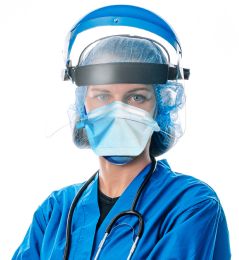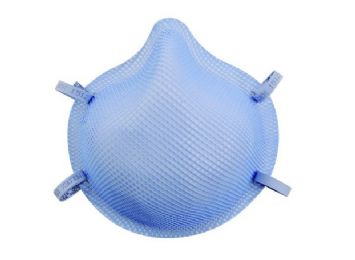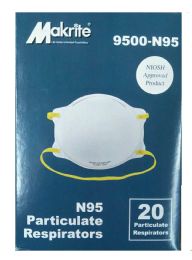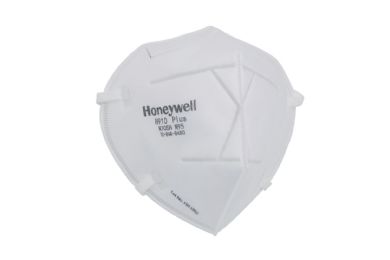





N95 masks are certified by the FDA and NIOSH with a Bacteria Filtration Efficiency (BFE) level up to 95 percent. This 95 percent rating stops bacteria, viruses, droplets, dust particles, and other non-oil fluids. N95 masks are approved and certified by the FDA while KN95 masks are no longer approved under the FDA emergency authorization. To reduce contamination and increase safety, these NIOSH-approved respirators serve as a physical barrier between patients and medical staff that may be symptomatic or asymptomatic with Covid.
The best N95 masks are NIOSH N95 respirator masks with a nose seal design that prevents glasses from fogging. N95 respirators often are designed with comfortable head straps instead of ear loops that can feel tight. Small and large N95 mask quantities are available for personal use in households or bulk quantities for hospital staff, nursing home residents, and schools. Different medical-grade face mask designs are available with ear loops or head straps.
The Correct Way to Wear N95 Surgical Mask:
Terms to Understand:
NIOSH - This is a USA Federal agency called the National Institute for Occupational Safety and Health that is responsible for research and recommendations to prevent injuries in the workplace.
FDA - This is a Federal Agency in the USA called the Food and Drug Administration. It is responsible for protecting public health by creating regulations and recommendations.
FDA Approval - The FDA approves products for safe use after they are already for sale. For medical devices, the FDA clears and approves of products that reach a safe risk level for the user.
BFE - Bacterial Filtration Efficiency is the percentage that a mask can prevent bacteria and pathogens from penetrating your mask. A higher BFE means the mask prevents nearly all pathogens from entering the mask. A low BFE means the mask material is thin and allows bacteria to flow through easily.